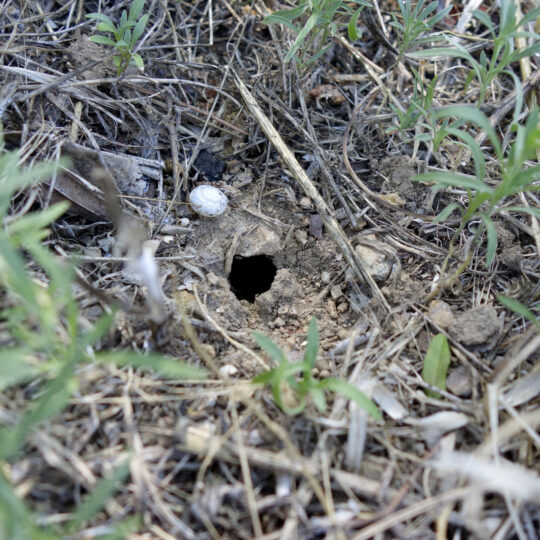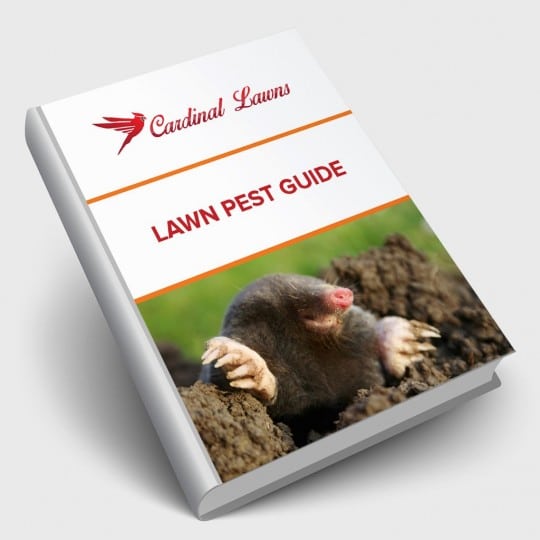What’s Creating Holes in Your Yard?
Identifying Questions to Ask about the Possible Culprits
Posted
April 17, 2025

Spring brings a lot of activity to your lawn. Both plants and pests are waking up from winter dormancy and leaving signs of their presence. Some signs are more worrisome than others. For instance, if you see small round holes dotted throughout the soil, it could mean birds are searching for food or bees are nesting. Determining the culprit makes it easier to decide what to do. Learn how to identify the cause of holes in your yard and what actions to take.
Identifying Factors
In order to determine what’s making the holes in your yard, focus on the following factors:
- How big and deep is the hole?
- Is there a mound around it?
- Is there a raised tunnel connecting the holes?
- Are there small, granular pellet—castings—near the hole?
- Is it a singular hole or clusters?
- Are there noticeable pests or animals nearby?
Observing the area over a period of time can help narrow down what creature is present. If you don’t see anything making or utilizing the hole, you can use the size, shape, and other properties to come to a conclusion.
Who’s Making the Holes in Your Yard
After noticing and evaluating the perforations in your lawn, you can start narrowing down the possible culprits.
- Voles, Chipmunks, and Shrews. These small rodents create nickel-sized holes to get in and out of their burrows and tunnels connecting them.
- Squirrels. They dig shallow holes to hide and find their nut stash.
- Insects. Cicadas and beetles emerge from the soil in the spring and early summer as they transition out of the larval stage.
- Cicada Killers. If there are cicadas in the trees, their predators could be nesting in the ground.
- Ground-nesting Wasps and Solitary Bees. Create a cluster of small holes to enter their underground nests.
- Earthworms. Leave small, pencil-sized holes with castings (small pellets of soil) nearby.
- Birds. Poke small holes into the ground to look for worms and grubs to eat.
While some of these hole-diggers are harmless, like squirrels and worms, any underground burrows can disturb your plants and bee nests can become a problem to anyone walking through the yard. It’s best to have the issue evaluated by a lawn care professional to properly determine what’s creating the holes and the possible problems it could create. Contact Cardinal Lawns for a consultation today.

Download Your FREE Lawn Pest Guide
Pests become most prevalent during the heat and humidity of summer. Take some time to learn about the signs of infestations before any damage can be caused to your landscape. This handy guide will teach you how to spot common lawn pests and how to keep them from causing harm to you and your property.